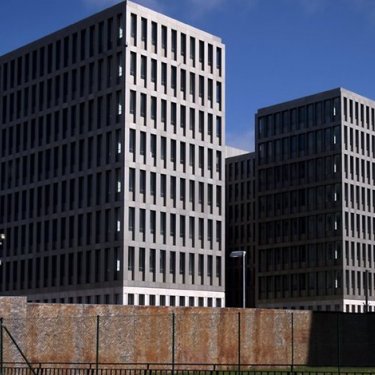BND ends illegal data processing after ruling on RSF Germany lawsuit

Following a longstanding legal dispute with the German branch of Reporters Without Borders (RSF Germany), the German foreign intelligence agency BND has bindingly stated that it is ending its illegal analysis of metadata records of phone calls (call detail records). The German Federal Administrative Court in Leipzig had already ruled in December 2017 that the BND was no longer allowed to process the data of RSF Germany in its so-called "traffic analysis system" (VerAS).
RSF Germany developed an online tool, the "BND-Generator", to make it possible for anyone to have themselves removed from the VerAS database by a simple mouse-click. Within just a few days the BND received over 2000 applications for removal. Faced with this flood of applications the BND capitulated and has now stated that it no longer operates VerAS in its previous form.
"With this statement by the BND we have achieved our goal: the illegal analysis of telephone metadata in VerAS has ended – and not just for us, but for everyone," said RSF Germany's executive director Christian Mihr. "This success shows that society can exercise control over its secret services through legal instruments and does not have to tolerate illegal activities. Thanks to the information provided by the Snowden leaks, we were able to take the matter to court, we received support from more than 2000 people – and as a result everyone’s rights have been strengthened."
A landmark ruling for better legal protection
The Federal Administrative Court ruling in December already represented a milestone in the fight for better legal protection against intelligence agency surveillance in Germany. RSF Germany had filed the lawsuit with the help of the Berlin-based law firm HÄRTING back in 2015, in reaction to repeated cases of journalists being targeted for surveillance by intelligence agencies without being notified or able to defend themselves against such measures. This surveillance effectively made these journalists involuntary informants of the state, even though it is they who were supposed to monitor the state’s actions. RSF Germany filed the lawsuit in its own name, but with the ultimate goal of strengthening the rights of all those affected.
The judges in Leipzig ruled that the BND lacked a legal basis for operating VerAS – and consequently it had to stop processing RSF Germany’s data in the system. In the VerAS database, the telecommunications traffic data gathered through the BND’s mass communications surveillance is analysed and interconnected. On the basis of this “signals intelligence surveillance” the foreign intelligence agency builds up increasingly extensive networks of surveillance targets even though the law does not allow this.
"BND-Generator" forces intelligence agency to capitulate
At the re:publica 2018 digital culture conference at the beginning of May, Christian Mihr and lawyer Christof Elßner presented an online tool which could be used by anyone to invoke the Federal Administrative Court’s ruling. After entering one’s name and postal address in the "Bitte-Nicht-Durchleuchten-Generator" ("Please don’t screen generator") the BND could proceed to confirming that the user had been removed from the VerAS database. Once this was done, the generator automatically created a letter demanding that the BND stop "storing or using telephone metadata from my telecommunications traffic in the VerAS files”, after which the BND had ten days to confirm that it had complied.
On the eleventh day after the first applications were sent – by then there were more than 2000 of them – the BND sent RSF Germany a letter, in which the agency declared that the applications would not be processed individually and that the entire VerAS system had been restructured in order to stop violations of civil rights. With this declaration, the intelligence bindingly stated that it had implemented the demands of the Leipzig court ruling – not just for those who had sent a corresponding application, but for the system as a whole. RSF Germany informed all users of the BND-Generator of this on Thursday (17.05) and took the tool offline.
Lawsuits in Karlsruhe and Strasbourg
RSF Germany’s fight against the indiscriminate surveillance of journalists by the BND continues in two other legal actions. Part of the original lawsuit filed in 2015, which has since been separated from the original case in the course of the proceedings, has been submitted to the European Court of Human Rights in Strasbourg . At the end of 2017, as part of a joint effort with other organisations, RSF Germany also lodged a constitutional complaint against a new BND law which expressly authorises the surveillance of journalists.
Germany currently ranks 15th out of the 180 states in the RSF World Press Freedom Index. For more information about the conditions for journalists in each country please visit www.reporter-ohne-grenzen.de/deutschland.



